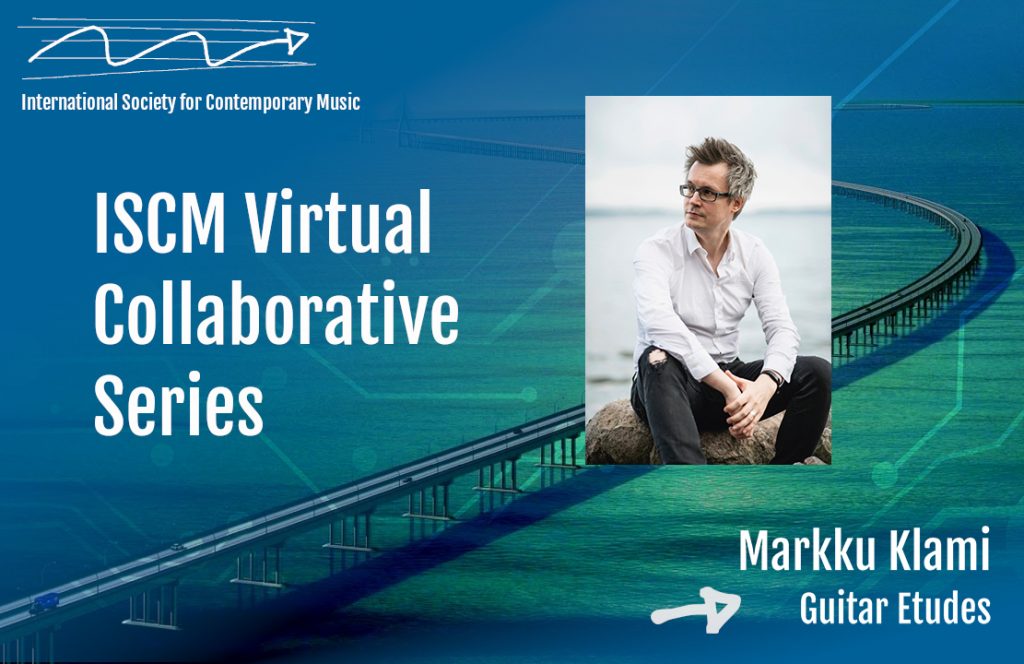Markku Klami: Guitar Etudes

Markku Klami (b. 1979) is fascinated by time and the way we humans perceive it. He writes music that feels true in his heart, without having the need to fit into any specific style, genre or technical approach in composing. Klami’s output spans over a variety of ensembles – he has written instrumental music from solo works to orchestral works with and without soloists, chamber music, works making use of electronics, two operas and other vocal music as well as purely electronic music and a couple of soundtracks for short movies. His music has been performed around Nordic countries, Europe, North America and South America, Russia, and China in festivals including Nordic Music Days (Denmark), Zagreb Music Biennale (Croatia), Musica nova Helsinki, Tampere Biennale, Turku Music Festival, Viitasaari Time of Music (Finland), Taiwan International Guitar Festival, Atlantic Music Festival (USA), Nuovi Spatzi Musicali and Rebus Festival (Italy). In 2011, Klami was featured in the program of European Capital of Culture in Turku, Finland with two large-scale works commissioned for the event: an one-hour children’s opera Tulevaisuuden retki (A Future Trek) and mixed-media work REPEAT for soloist, electronics and video. In addition to composing, Klami is active in the field of music education and holding several positions of trust in Finnish music organizations. He is member of the board of Society of Finnish Composers and Finnish Music Council. He is also active in several projects focusing on pedagogy of music composition in Finland, including Ääneni äärelle (“Finding my Voice”, coordinated by Society of Finnish Composers) and SäPe (“Pedagogy of Composition”, coordinated by Metropolia University of Applied Scienes).
About his two Guitar Etudes composed in 2021, both featured here in performances by Patrik Kleemola, Klami writes:
In Nocturno (Etude No. 5), the harmonic palette is expanded further by introducing microtonality. The microtones (rounded to the nearest quarter tone in the notation) are produced by plucking the strings over the fingerboard on the ‘wrong’ side of the left-hand grip. Other extended playing techniques include producing microtones by first muting the strings with the right hand and then hammering the strings with the left hand, allowing the strings to resonate between the nut and the grip. The unconventional playing techniques introduced in this etude make it possible to let more than six different notes ring out simultaneously.
Avautuen (Etude No. 8) might bring into mind the minimalist character of the music by Steve Reich and Philip Glass during the 1970s. In fact, I consider Avautuen to be a homage to these composers. A new unconventional playing technique, at least in traditional writing for classical guitar, comes into play here. Throughout this piece, the score calls for partially muting strings by varying the pressure of the left-hand fingers on the fingerboard. This presents a challenge to the guitarist, who must maintain the balance varying the pressure of the left-hand fingers and controlling dynamics by plucking the strings with the right hand. Once mastered, the piece becomes an endurance test for the right hand through its continuous chord repetition, similar to Etude No. 4 by Heitor Villa-Lobos.
